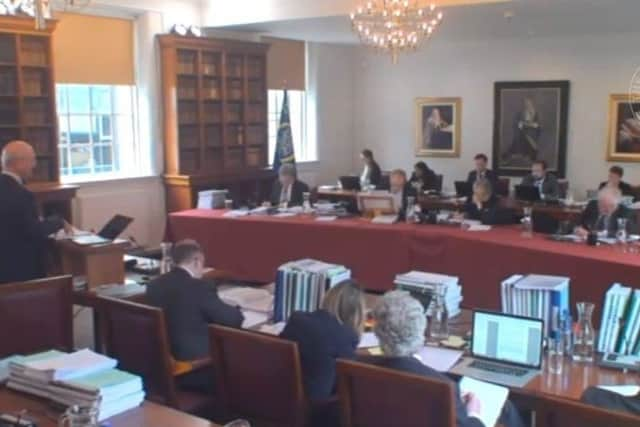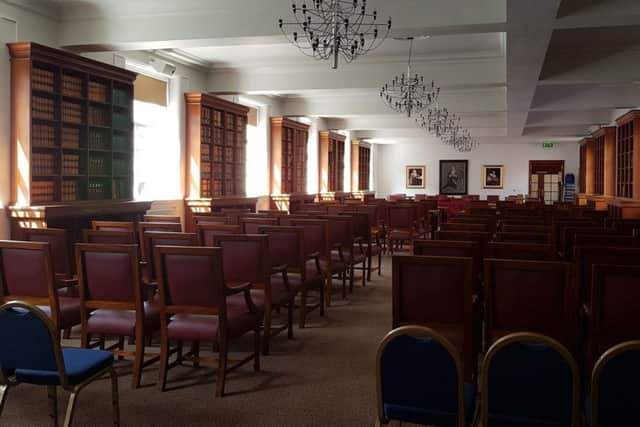Legal expert says banning public and press from sex trials should only be a last resort


Joshua Rozenberg was speaking in the Bar Library in Belfast after the Supreme Court sat in the same room for three days.
The former BBC legal correspondent, the only journalist to have been made an honorary QC, delivered the Northern Ireland Human Rights Commission annual lecture on Wednesday, on the theme ‘Are Judges “Enemies of the People”? The relationship between judges, media and politicians in the modern age’.
Advertisement
Hide AdAdvertisement
Hide AdThe title of the address referred to a Daily Mail story that attacked three High Court judges who ruled that the government needed parliamentary approval to trigger Brexit.


In his 35-minute talk – attended by judges, lawyers, students, human rights activists and others – Mr Rozenberg examined the relationship between the media and the courts, and he was at points critical and at other points supportive of past actions of both.
Asked at the end of his speech by a member of the audience about possible reforms to sex trials, in the wake of the rugby rape trial case, Mr Rozenberg said that excluding press or public from a criminal trial or banning a defendant’s identity would be only a last resort.
He told the audience it was better first to use special measures to protect the complainant, for example “a complainant can give evidence behind a curtain, a complainant can give evidence on a video link, so that she, and usually she, wouldn’t be able to hear the muttering in the courtroom when she gives her evidence, even though the courtroom can hear what she says”.
Advertisement
Hide AdAdvertisement
Hide AdHe added: “If that is too difficult, I would certainly consider pre-recorded evidence in chief and pre-recorded cross examination.


“If there is a risk of a name being read out, and then reported on social media, as obviously there is, then I would say: don’t publish her name in court, refer to her as the complainant, refer to her by a pseudonym.
“I am not saying that would make it impossible for people to find out who she was in a small country, people would know and it might be published — in that case you prosecute people for contempt of court and you send them to prison and you send out a message.”
Mr Rozenberg, whose address was introduced by the NI Human Rights chief commissioner Les Allamby and the chief justice of Northern Ireland, Sir Declan Morgan, and whose audience included Sir John Gillen, the retired judge who will be reviewing the handing of serious sex trials, said that “we should preserve freedom of the press to report what is going on because if we don’t in the age of social media people will get an idea of what is going on, a false idea of what is going on, a partial idea of what is going on, and they will be less well informed about what the courts are trying to do”.
Advertisement
Hide AdAdvertisement
Hide AdHe added: “The message from the Lord Chief Justice of England and Wales is to open the courts as much as possible.
“The reason the UK Supreme Court was here was to bring the court to the people and let the people see how the courts worked.
“The reason that the UK Supreme Court didn’t have the bad publicity that the high court had [in the appeal of the aforementioned High Court Brexit case] was that people could see what was going on.”
He said: “We certainly don’t want to go in the other direction.”
Advertisement
Hide AdAdvertisement
Hide AdThe News Letter asked Mr Rozenberg after his talk more about his stance on possible reforms.
Excluding press and public from an entire criminal trial should be “very much the last resort,” he said.
“Almost the last resort would be to exclude the public and allow in the media. Slightly better, but still pretty much the last resort, would be to allow in the public and media but ban publication of the defendant’s identity.”